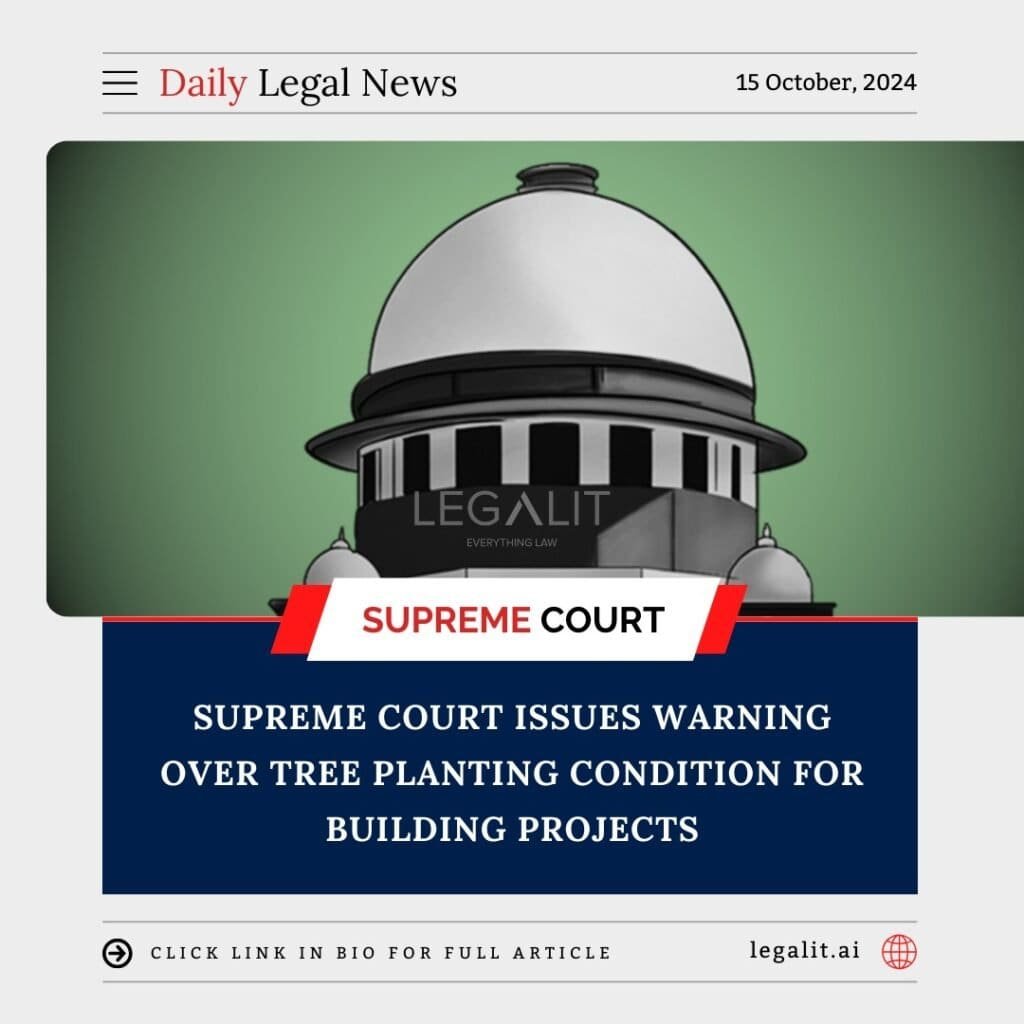
The Supreme Court of India has issued a stern warning regarding the enforcement of environmental regulations, specifically emphasizing that it will order the demolition of buildings if developers fail to comply with conditions set for planting trees. This directive highlights the judiciary’s commitment to balancing urban development with ecological sustainability.
Background
In recent proceedings, the Supreme Court underscored the significance of adhering to environmental norms when granting construction approvals. The court’s order arose from a case where developers had been lax in fulfilling their obligation to plant a designated number of trees as part of their construction projects.
Key Points of the Ruling
- Mandatory Compliance: The Supreme Court made it clear that compliance with tree planting conditions is not optional. Developers must demonstrate a commitment to environmental responsibility, and failure to do so could result in severe consequences, including the potential demolition of structures that were built without fulfilling these conditions.
- Environmental Accountability: This ruling reflects the court’s increasing focus on environmental issues, emphasizing that urban development should not come at the expense of ecological balance. The court’s decision is a reminder to builders and developers to integrate sustainable practices into their projects.
- Public Interest: The Supreme Court’s stance is rooted in the larger public interest, highlighting the importance of green spaces in urban areas. The court noted that trees are vital for combating pollution and enhancing the quality of life in cities.
Implications for Developers
Developers are now on notice that they must adhere to environmental regulations strictly. The possibility of demolition orders serves as a strong deterrent against negligence. Moreover, this ruling may prompt other courts to adopt similar stances in future cases related to environmental compliance.
Conclusion
The Supreme Court’s warning is a crucial step in enforcing environmental laws in the construction sector. By insisting on tree planting as a non-negotiable condition for development, the court aims to foster a more sustainable approach to urbanization.